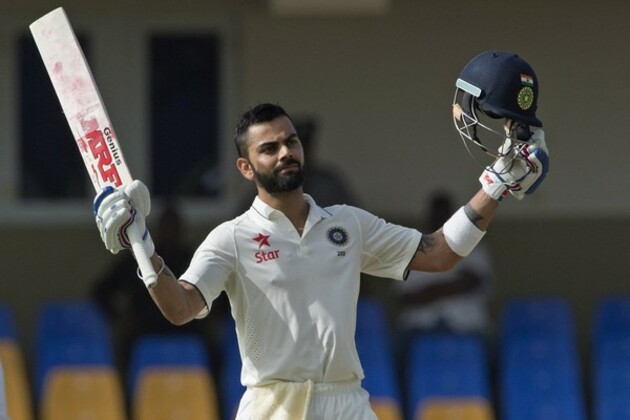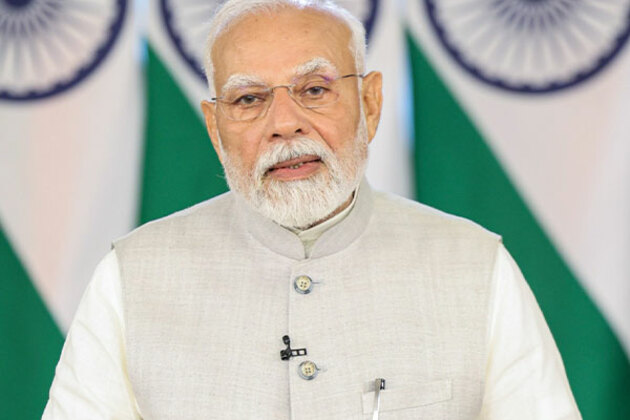Dementia risk depends on more than lifestyle factors. Overstating this can cause stigma and blame
The Conversation
12 May 2025, 20:18 GMT+10

As public awareness of dementia grows, so too does the appetite for prevention. Global headlines tout the benefits of exercise, diet, brain training and social activity in reducing dementia risk.
In recent years, medical journals have amplified this message to encourage people to take control of their cognitive futures through lifestyle change. Last year, The Lancet estimated up to 45% of dementia cases worldwide could theoretically be delayed or prevented by addressing modifiable risk factors.
These messages are undeniably hopeful. They suggest personal effort, combined with emerging scientific evidence, can help to overcome a disease long seen as inevitable.
But public health messaging that focuses too narrowly on behaviour may be misleading and potentially harmful, as we argue in The Lancet.
This can lead to a two-tiered system, where affluent people are praised for their proactive brain health, while marginalised groups face barriers to participation and are blamed for their perceived inaction.
Dementia is a neurocognitive disorder and describes conditions that affect memory, thinking and the ability to do everyday tasks. Alzheimer's disease is the most common type, but there are others such as vascular and Lewy body dementia.
It happens when brain cells become damaged and stop communicating properly. This can cause confusion, forgetfulness and changes in behaviour or mood.
Dementia is linked to some of our deepest cultural fears: the limits of autonomy, dependency on others, the stigma of being diagnosed and the unknown.
So, what increases your risk of dementia? Some risk factors can't be changed. Age is the biggest one. Family history and certain genes, such as APOE-e4, also raise risk.
But many risk factors are modifiable, which means we can do something about them. Obesity, high cholesterol and high blood pressure raise your risk. Low levels of exercise or education can also increase the chances of developing dementia.
Read more: These 12 things can reduce your dementia risk - but many Australians don't know them all
The science of dementia prevention has evolved significantly over the past decade. Lifestyle trials, from Finland, France, Australia and the United States are exploring whether combinations of diet, physical activity, cognitive training and managing cardiovascular risk (high blood pressure, cholesterol, obesity and smoking) can reduce dementia risk.
The Finnish study, the most widely cited of these, demonstrated modest but meaningful cognitive benefits in older adults at risk for dementia after a two-year lifestyle intervention.
Its success has spurred a wave of similar studies globally (to date, more than 40 trials). Collectively, these trials provide a scientific foundation for an increasingly popular public health message: brain health tomorrow is linked to healthy behaviours today.
New possibilities for preventing dementia are certainly promising. However, the translation of these findings into broad public campaigns is where complexity, and ethical tension, emerges.
Dementia risk is also determined by a complex array of extrinsic factors - conditions outside our control - that are unevenly distributed across society: air quality, ethnicity, gender, occupation, the built environment.
These factors influence not just if, but when, dementia might develop.
Dementia prevalence is disproportionately higher in communities facing social disadvantage partly because modifiable risk factors such as diabetes, obesity and low education are also more common in these areas.
But there's another layer: access. The same communities at greater risk often lack access to the very interventions meant to reduce that risk.
Low-income neighbourhoods may have fewer green spaces, safe walking paths, or affordable, healthy food. They also face higher levels of pollution, noise and chronic stress. All of which can damage brain health.
Not everyone can access the kinds of healthy lifestyles to counteract dementia risks. Telling people to eat a Mediterranean diet or join a gym may be a cold comfort for those without the money, time, services or mobility to do so.
Positioning dementia as something people can avoid also risks implying dementia is something individuals can fail to prevent. This could reinforce existing narratives which equate disease in later life to poor lifestyle choices rather than social inequity.
First, prevention messaging must be framed within a social and cultural context.
This means acknowledging and addressing barriers such as food insecurity, lack of green space, caregiver stress and health system distrust.
Messages must be co-created with communities, not imposed on them, and have a visual, motivating appeal.
Second, we must shift from individualistic narratives to collective responsibility. Brain health should be supported through public infrastructure, equitable access to care, and culturally sensitive health promotion.
Prevention doesn't just happen in the home. It also happens in preschools, schools, shopping centres, clinics, parks and policy rooms.
Finally, we need to reframe success. Preventing dementia is a worthy goal, but so is ensuring dignity, inclusion and care for people who live with it. A just approach to brain health must do both.
The next generation of dementia messaging must be not only evidence-based, but also equity-focused. It should strive to educate without shaming, to empower without excluding, and to promote brain health in ways that honour the realities of ageing.
 Share
Share
 Tweet
Tweet
 Share
Share
 Flip
Flip
 Email
Email
Watch latest videos
Subscribe and Follow
Get a daily dose of Tennis Times news through our daily email, its complimentary and keeps you fully up to date with world and business news as well.
News RELEASES
Publish news of your business, community or sports group, personnel appointments, major event and more by submitting a news release to Tennis Times.
More InformationSports
SectionRuthless, fit, fast and unprecedented: How Virat Kohli transformed India's Test cricket fortunes
New Delhi [India], May 13 (ANI): Legendary India batter Virat Kohli announced his retirement from Test cricket on Monday, bringing...
"Your journey will inspire countless players....": Ishant, Siraj hail Virat on successful Test career
New Delhi [India], May 12 (ANI): Indian pace veteran Ishant Sharma, a long-time friend of star India batter Virat Kohli, hailed the...
Greg Chappell calls Virat "most influential figure" in Indian cricket following Test retirement
New Delhi [India], May 12 (ANI): Former Australian captain and Indian head coach hailed star batter Virat Kohli as 'Indian cricket's...
"Incredible innings": Novak Djokovic hails Virat for successful Test career; Harry Kane, Neeraj Chopra also join
New Delhi [India], May 12 (ANI): Serbian tennis icon Novak Djokovic congratulated star Indian batter Virat Kohli for a remarkable Test...
"All IPL franchises to call their foreign players to return": BCCI sources
New Delhi [India], May 12 (ANI): The Board of Control for Cricket in India has informed the ten Indian Premier League (IPL) franchises...
Brazil names Carlo Ancelotti as new manager
Carlo Ancelotti looks on before the FIFA Intercontinental Cup Qatar 2024 Final match between Real Madrid and Mexico's CF Pachuca at...
Lifestyle
SectionBill to legalize Recreational marijuana passed in Pennsylvania house
HARRISBURG, Pennsylvania: People in Pennsylvania who are 21 or older could soon be allowed to legally buy and use marijuana. The state...
Netanyahu credits Trump's diplomatic efforts for Edan Alexander's release after 584 days
Tel Aviv [Israel], May 13 (ANI): After 584 days of Hamas captivity, Israeli-American hostage Edan Alexander has returned to Israel,...
Greg Chappell calls Virat "most influential figure" in Indian cricket following Test retirement
New Delhi [India], May 12 (ANI): Former Australian captain and Indian head coach hailed star batter Virat Kohli as 'Indian cricket's...
PM Modi expresses grief over Raipur road accident, announces ex gratia of Rs 2 lakh for kin of deceased
New Delhi [India], May 12 (ANI): Prime Minister Narendra Modi on Monday expressed grief over the loss of lives due to a tragic road...
ZhejiangPictorial | 2025 Puyuan Fashion Week launched in E China's water town
A model presents a creation during the 2025 Puyuan Fashion Week at the Puyuan Fashion Resort in Puyuan Town of Tongxiang City of Jiaxing,...
Dementia risk depends on more than lifestyle factors. Overstating this can cause stigma and blame
As public awareness of dementia grows, so too does the appetite for prevention. Global headlines tout the benefits of exercise, diet,...











